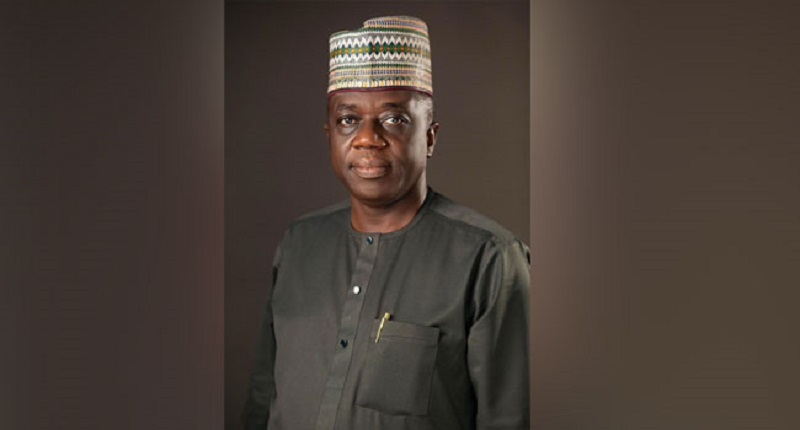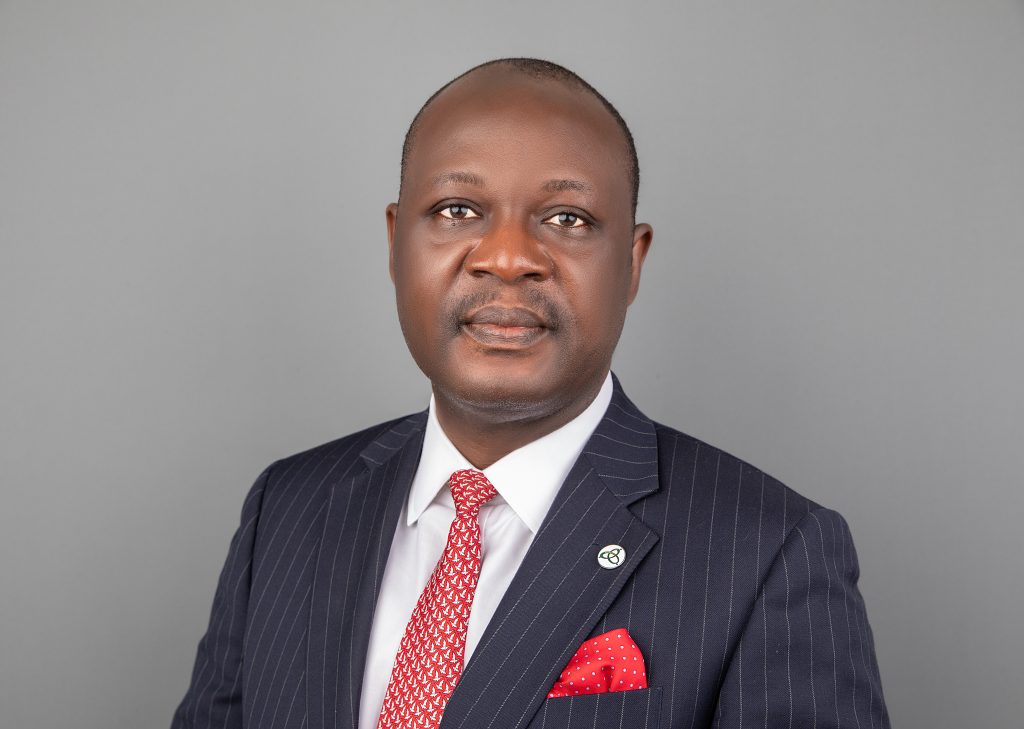Jobs/Appointments
The Prospects for Tech Career in the Future

By Otori Emmanuel
Technology’s capacity to foster growth and development is more apparent than ever. In that, the influence of technology cannot be overstated, from streamlining routine tasks to creating ground-breaking solutions. Technology has been extensively adopted throughout generations, and there is still an expectancy for it to meet future needs.
A growing demand for qualified technologists exists due to how prevalent technology has become. According to a report from the Bureau of Labor Statistics, from 2021 to 2031, it is anticipated that overall employment in computer and information technology occupations would increase by 15%, substantially faster than the average for all occupations. This increase is anticipated to result in the creation of around 682,800 new jobs during the decade.
Many are putting in a lot of effort to maintain their position in the future and avoid becoming obsolete. This involves continuing personal training through online learning resources, giving back to the community, participating in tech forums, and attending conferences that expose one to the various facets of the tech industry.
Gap in the Industry
However, there is now competition across industries for these abilities as a result of the demand for tech skills. To keep the sector prospering, the technology skill gap caused by this competition needs to be closed. With the development of new technologies, workers’ contributions have been affected by the move toward machine learning, robotic engineering, artificial intelligence, cloud services, and decentralized operations.
The difference between what people can do and what employers expect them to be able to do is known as the skills gap. If an employee just knows how to program, yet a technology job role requires knowledge of both internet networking and a programming language, there is a skills gap. Due to this gap, businesses find it challenging to fill open positions. The employee can get better at this by developing the talent they lack.
Therefore, in order to supply services effectively, these new concepts must be acquired and mastered. Many tech professionals have been compelled to learn new ideas, hone their already-existing talents, and take on more difficult tasks to advance their careers because not all of them are knowledgeable in these new tech disciplines.
Tech industry benefits to Individuals
Due to the numerous benefits offered to employees, such as competitive pay, flexible work schedules, health insurance, skill development, paid parental leave, and job security, the tech industry is still enticing. Hence, many people have transitioned into IT from non-technical backgrounds.
Nowadays, many people do online training and obtain certifications to equip them with the knowledge they need to thrive in their employment. This is being done now to protect the future, even though it was rarely done in the past. Others have pursued their interests while working for tech companies without necessarily being “in IT”. The ease of entrance into the tech industry offers insight into how the industry is changing. Many IT experts are willing to work remotely from their homes.
Skills for the Future
Currently, hard skills and Soft skills are two basic skills essential to delivering maximum performance in the tech industry. Hard skills are frequently knowledge-based talents that are exclusive to particular professions, whereas soft skills are frequent and value-based skills that are not connected to particular employment.
Hard skills include, among others:
- Artificial Intelligence (AI)
- Machine Learning (ML)
- Data science
- Data analytics
- Data visualisation
- User Interface/Experience (UI/UX)
- Software engineering
- Cloud computing
- Internet of things (IoT)
- Cybersecurity
- Human-Computer Interaction
- Technical research and writing
Several Soft skills include;
- Communication skills
- Leadership skills
- Team player skills
- Mentorship skills
- Work Ethic
- Empathy
- Networking skills etc.
Future skills are those abilities that empower people to solve tough problems when situations evolve yet in an organised manner. It comprises hard skills, soft skills, transferable skills and other innovative skills. These abilities are essential for the coordination of formal activities. Some are innate that need to be cultured, while others can be formed through a learning process. They include; Creativity, Decision making and good judgment, Digital literacy and Computational thinking, Cognitive thinking, Collaboration, Management, Cultural intelligence, Financial Intelligence, Emotional intelligence, Automation etc.
In addition to one’s primary training, these abilities are necessary for working in multi-functional teams. Not every skill must be mastered to succeed.
Jobs/Appointments
Tinubu Appoints Ogunjumi Acting Accountant General as Madein Retires

By Adedapo Adesanya
President Bola Tinubu has appointed Mr Shamseldeen Babatunde Ogunjimi as the Acting Accountant General of the Federation (AGF).
This was contained in a statement on Tuesday by presidential spokesman, Mr Bayo Onanuga.
“His appointment is effective immediately following the pre-retirement leave of the incumbent AGF, Mrs Oluwatoyin Sakirat Madein,” a part of the statement read.
“In announcing Madein’s successor, President Tinubu ensures a seamless transition in the administration of Nigeria’s treasury and consolidates the implementation of the present administration’s treasury policy reforms,” the statement added.
Mr Onanuga said Mr Ogunjimi brings over 30 years of extensive experience in financial management across the public and private sectors.
He described the appointee as a career civil servant and the most senior director in the Office of the Accountant General of the Federation (OAGF),
“He has held significant positions, including Director of Funds at the OAGF and Director of Finance and Accounts at the Ministry of Foreign Affairs.
“A chartered accountant, certified fraud examiner, chartered stockbroker, and chartered security and investment specialist, Mr Ogunjimi’s academic qualifications include a Bachelor of Science (BSc) in Accountancy and a Master’s in Finance and Accounting,” the statement added.
According to Mr Onanuga, President Tinubu expressed his confidence in his appointment, saying, “The Office of the Accountant General of the Federation is pivotal to our nation’s treasury management operations. Mr Ogunjimi’s wealth of experience and notable competence will ensure the continued effectiveness of this vital institution as we advance our economic reform agenda.”
President Tinubu also commended the outgoing Accountant General of the Federation, Mrs Madein, for her dedication and selfless service to the nation.
After reaching the civil service’s statutory retirement age, Mrs Madein is retiring effective March 7, 2025.
Jobs/Appointments
CBN Denies Forceful Mass Retirement Amid Restructuring

By Adedapo Adesanya
The Central Bank of Nigeria (CBN) has dismissed claims of forced mass retirement as part of efforts by Governor Yemi Cardoso to restructure the workforce of the organisation.
In a statement released on Wednesday, the Acting Director of Corporate Communications, Mrs Hakama Sidi Ali, clarified that its Early Exit Package (EEP) is entirely voluntary and without any negative repercussions for eligible staff.
According to the statement, the decision to implement the exercise was the outcome of extensive consultations with the bank’s Joint Consultative Council (JCC), a body representing staff interests.
Mrs Sidi Ali explained that the EEP, a longstanding policy previously accorded to the executive cadre, has now been made available to eligible staff at all levels.
“For some time, staff representatives through the JCC had called on management to approve the early exit package for all cadres. Following these discussions, management decided to meet this popular demand,” she said in the statement.
Addressing concerns about potential repercussions for staff who decline the package, Mrs Sidi Ali reaffirmed management’s commitment to supporting employees’ professional growth and well-being, describing the concerns as unfounded.
She further emphasized that the initiative is an internal corporate matter designed to promote career development for staff.
According to wide spread reports, there have been plans to retire approximately 1,000 employees by the end of the year with a payoff estimated to cost over N50 billion.
The mass retirement, which was announced in a circular issued three weeks ago, mandates affected employees to apply for the Early Exit Package (EEP).
The statement allegedly warned employees with less than one year of service or unconfirmed appointments to refrain from applying for the program, noting that the application would remain open until December 7, with an effective exit date of December 31, 2024.
It was reported that the entire EEP was valued at N50 billion.
Jobs/Appointments
CBN Okays Appointment of Benson Ogundeji as Greenwich Merchant Bank CEO

By Modupe Gbadeyanka
The Central Bank of Nigeria (CBN) has approved the appointment of Mr Benson Ogundeji as the chief executive of Greenwich Merchant Bank Limited.
The board of the financial institution for businesses had picked Mr Ogundeji as its substantive CEO but awaited the authorisation of the banking sector regulator.
He brings over three decades of extensive banking experience to this role as a seasoned financial services professional, who previously served as Executive Director at Greenwich Merchant Bank from July 2020, where he played a pivotal role in the bank’s successful transition from the legacy Greenwich Trust Limited to a merchant bank.
In this capacity, he provided oversight for Corporate Banking, Treasury and Global Markets.
Throughout his career, Mr Ogundeji has demonstrated exceptional expertise in business development and operational excellence.
Before joining the firm, he held various senior leadership roles at prominent financial institutions, including Ecobank Nigeria, GTBank, and other notable banks, where he consistently displayed exceptional leadership skills.
His appointment comes at a crucial time as Greenwich Merchant Bank commences the next phase of its growth plans. Having related closely with the new CEO, as an Executive Director and acting CEO in the last four years, the board has expressed confidence about his ability to lead the bank in delivering our strategic goals.
“The board is pleased to announce the appointment of Benson Ogundeji as our Managing Director/Chief Executive Officer,” the chairman of Greenwich Merchant Bank, Mr Kayode Falowo, stated.
-

 Feature/OPED5 years ago
Feature/OPED5 years agoDavos was Different this year
-
Travel/Tourism8 years ago
Lagos Seals Western Lodge Hotel In Ikorodu
-

 Showbiz2 years ago
Showbiz2 years agoEstranged Lover Releases Videos of Empress Njamah Bathing
-

 Banking6 years ago
Banking6 years agoSort Codes of GTBank Branches in Nigeria
-

 Economy2 years ago
Economy2 years agoSubsidy Removal: CNG at N130 Per Litre Cheaper Than Petrol—IPMAN
-

 Banking2 years ago
Banking2 years agoFirst Bank Announces Planned Downtime
-

 Sports2 years ago
Sports2 years agoHighest Paid Nigerian Footballer – How Much Do Nigerian Footballers Earn
-

 Technology4 years ago
Technology4 years agoHow To Link Your MTN, Airtel, Glo, 9mobile Lines to NIN






















